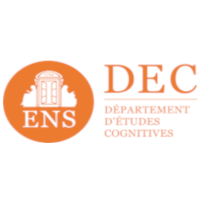
29 Jun M2 Internship – Computational Modelling of Nicotinic Pathologies in Alzheimers Disease
Computational modelling of nicotinic pathologies in alzheimers disease
M2 Internship · Paris, France
Information
Laboratory: LNC2
Address: 29 rue d’Ulm, 75005 Paris, France
Team: Mathematics of Neural Circuits
Adviser: Boris Gutkin
Email: boris.gutkin@gmail.com
Length of internship: 5-6 months
Language: French and/or English
Alzheimer’s disease (AD) is characterized by progressive cognitive deterioration from early mild cognitive impairment (MCI)) to dementia. The multi-scale causes of such pathologies, from the subcellular to the brain level, remain elusive to experimental approaches alone. The masters project is geared towards developing new models of cell-specific pathologies associated with AD and examining their effects at teh population and functional level. Specifically the models developed will identify AD-linked beta amyloid (Ba) role in neural activity alterations and cognitive impairments. The models, constrained by state-of-the-art data, will relate abnormalities at the receptor and cellular level with deficits in cognitive functions. We will focus on data-based modeling of early AD when low levels of Ba interact with elements of the neuronal circuit (data from collaborator labs). We will examine the Ba action through nicotinic acetylcholine receptors (NNRs) on brain activity seen in AD/MCI: notably the hyperfrontality and perturbations of the theta rhythm.
The intern taking part in this project will work on one of the two aspects to specifically delineate the role of Ba action on NNRs of multiple subtypes (homomeric alpha7, heteromeric alpha7, beta2, alpha 5) in 1. the progressive onset of fronto-cortical hyperactivity or 2. the role of Ba-a7 action on failure of theta rhythm in the hippocampus. This they will be able to participate in one of two specific Aims:
- Aim1: Guided by cutting edge data from Maskos lab (Pasteur Institute), we will build on our earlier developed models of NNR action in PFC circuitry to discover precise mechanisms by which soluble Ba acts on the NNR expressed on inhibitory circuitry to provoke hyperactivity.
- Aim2: Guided by data from Yakel lab (NIEHS) our framework will extend to a mesoscopic spiking circuit model of theta induction in the hippocampus and Ba-a7 induced dynamics pathology.
- Aim3: We will use these to model key cognitive tasks (e.g. working memory) and identify links between Ba-NNR pathways and MCI. We will profile potential nicotinic agents for functional amelioration.
Intern will receive training in computational modelling, analysis and the neurobiology of AD. Intern will take part in the scientific life of the GNT: seminars, lectures, presentations.
Please click here to learn more.


Sorry, the comment form is closed at this time.